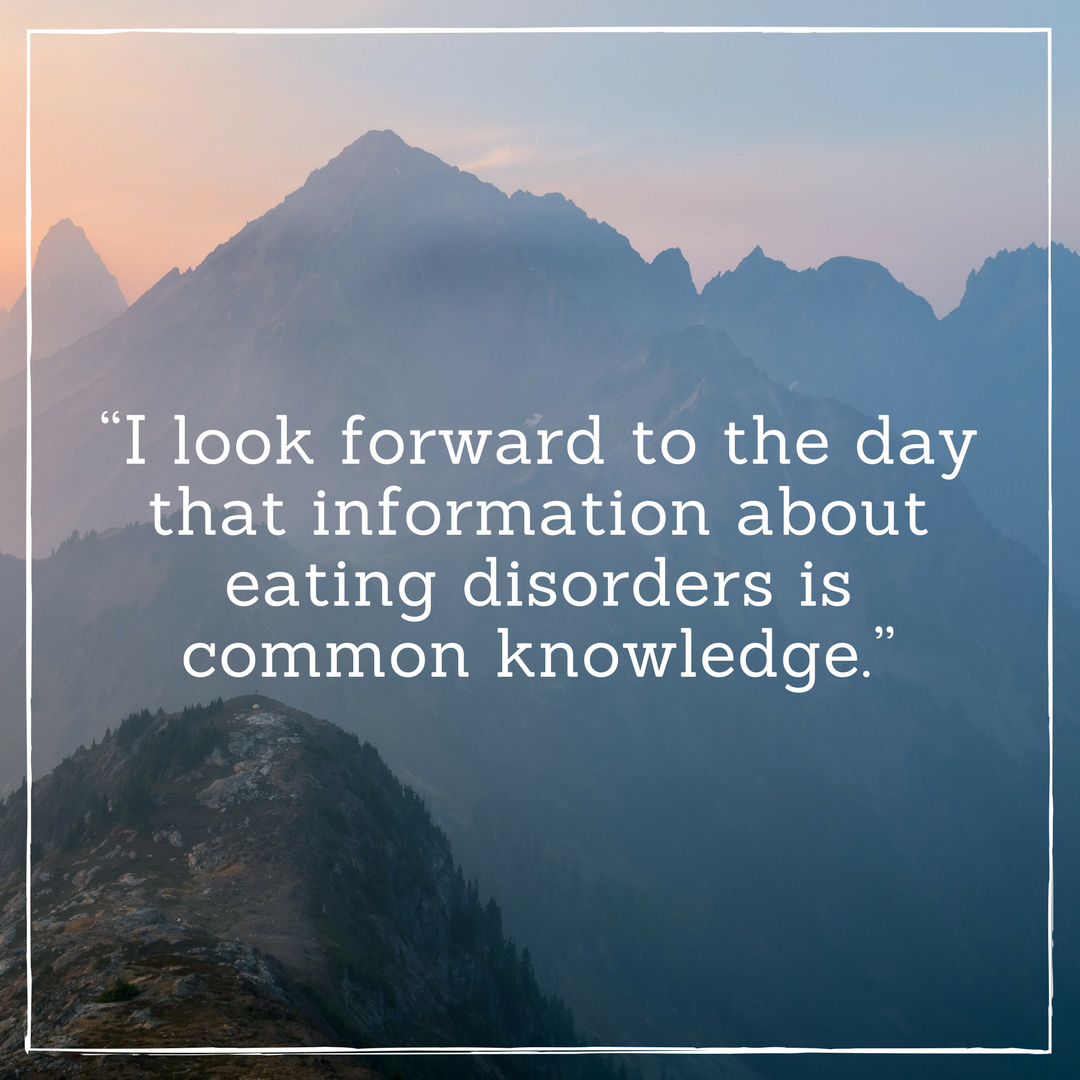February 27, 2018
By Lexie Manion

Every year for National Eating Disorder Awareness (NEDA) week, I see eating disorder recovery photos on social media. I can relate to these photos in some respects, as I experienced extreme weight loss when I first developed an eating disorder. But I also can’t relate because when I gained the weight back, I wasn’t all better.
As a teenager, the fear I had around food was actually about my feelings of lacking control in my life. I felt helpless because bad things were happening around me I couldn’t change or control, but I did have control of what I put into my body, and I could numb my emotions by doing so. My restrictive behaviors have evolved since then. Now, I use eating to cope with negative emotions.
That’s why I feel insinuating that weight restoration is the “final step” in recovery is risky—both for those in recovery and the public. Recovery is so much more than reaching goals in terms of weight. To me, recovery is about unlearning the ways in which we have learned to cope, while simultaneously digging deeper to the root of our struggles, so we can also heal our minds. It’s about unpacking the fears we have around food, weight, or body image, and realizing there is more to the equation.
When it comes to eating disorders, or any mental illness, the struggle is primarily internal. Eating disorders can cause weight gain, weight loss or they can have no effect on weight at all. And all these eating disorder diagnoses are valid; one does not have to “look sick” to be struggling.
While some recovery journeys do include being underweight and then gaining weight as recovery progresses, not everyone can relate. In fact, some people might feel as though their struggles are not valid because they aren’t “as sick” or “as bad as” the person in the “before” photo. There is already such a stigma surrounding eating disorders and these transformation photos only tend to reinforce it.
I felt compelled to address and offer an alternative to posting before-and-after recovery transformations. This is how #BoycottTheBefore was born. The idea is simple: Instead of posting that low-weight photo, I encourage eating disorder survivors to post an image reading, “I am so much more than a before photo. #BoycottTheBefore”, alongside a photo of their current selves.
This celebrates the present and takes focus off the depictions of extreme weight loss. #BoycottTheBefore aims to break the cycle of survivors feeling pressured to share their low-weight photos. I know far too many eating disorder survivors who felt pressured to share their shocking photos.
There has been some controversy around the #BoycottTheBefore movement, as not everyone agrees with the message. So, my friend and I wanted to take my original concept and go in a different direction. For #FearlesslyFaceless, we encourage eating disorder survivors to share a uniform image we created for social media that reads: “I am #FearlesslyFaceless.” The campaign, like #BoycottTheBefore, challenges the narrative that eating disorders have a specific look. Unlike the first campaign though, we discourage sharing any photos, so the focus is on survivors’ stories.
I encourage you to join me in both the #FearlesslyFaceless and #BoycottTheBefore campaigns this year and beyond to fight stigma and raise much-needed awareness. I truly believe that eating disorder awareness campaigns are positive steps towards ensuring change. I believe that once the public is properly educated, that same knowledge can go into helping mental health care professionals in better supporting clients, as well as helping insurance companies realize the importance of covering mental health treatment.
I look forward to the day that information about eating disorders is common knowledge.
To get involved in #BoycottTheBefore, check out the instructions here. To get involved in #FearlesslyFaceless, check out the instructions here.
Lexie is a 22-year-old body positive activist, mental health advocate and blogger located in New Jersey. She writes about her struggles to process and heal. Lexie shares her words with the world with the hope of helping others see they are never alone. You can read her work at https://lexiemanion.com/.
Submit To The NAMI Blog
We’re always accepting submissions to the NAMI Blog! We feature the latest research, stories of recovery, ways to end stigma and strategies for living well with mental illness. Most importantly: We feature your voices.
LEARN MORE